News
View News Archives
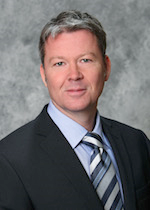
Dr. David Roy named Science Team Leader of 2026–2030 Landsat Science Team
January 22, 2026
David Roy, Professor of Geography and Director of the Center for Global Change and Earth Observations (CGCEO) at Michigan State University, has been named Science Team Lead of the newly formed 2026-2030 Landsat Science Team.

CGCEO members present at the Annual Meeting of the American Geophysical Union (AGU) meeting, New Orleans, December 2025
December 22, 2025
CGCEO members who presented or co-authored their research attended the American Geophysical Union annual meeting 15-19th December 2025, New Orleans, Louisiana.
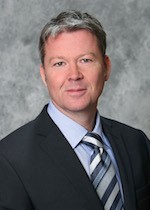
David Roy makes list of Most Highly Cited Researchers for seventh recurring year
November 12, 2025 - Diane Huhn
Professor David Roy, professor in the Department of Geography, Environment and Spatial Sciences and director of the Center for Global Change and Earth Observations, was one of eight researchers and professors from Michigan State University who have been recognized in the “2025 Highly Cited Researchers” list, a ranking organized annually by Clarivate Analytics.
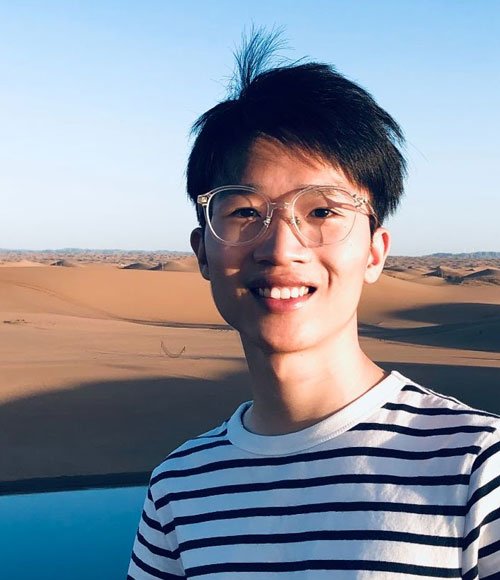
Yuean Qiu awarded NASA FINESST Graduate Fellowship
July 11, 2025
Congratulations to Yuean Qiu on being awarded a prestigious Future Investigators in NASA Earth and Space Science and Technology (FINESST) Fellowship award.
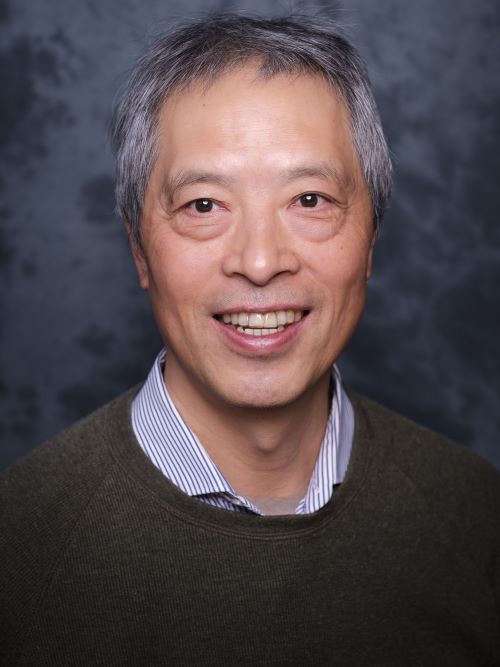
Jiquan Chen named University Distinguished Professor
June 23, 2025
Jiquan Chen has been named a University Distinguished Professor in recognition of his outstanding achievement in teaching, research, and public service.
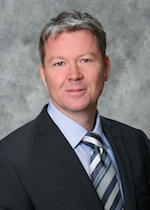
Roy advocates for continued science oversight of the U.S. Landsat program in the journal Science
June 13, 2025
Professor David Roy and colleagues recently published a letter in the journal Science highlighting the need for continued scientific guidance for the current and next-generation Landsat Earth Observation satellites.

David Roy Makes List of Most Highly Cited Researchers for Sixth Recurring Year
November 21, 2024 - Diane Huhn
Dr. David Roy, Director of the Center for Global Change and Earth Observations and professor of Geography, has been named to the list of most highly cited researchers in the world for a sixth consecutive year.
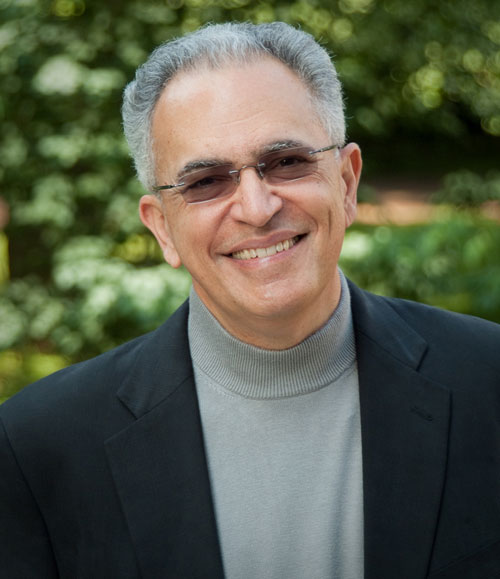
Moran to continue energy convergence work in the Brazilian Amazon through new C.S. Mott Foundation grant
November 4, 2024 - Diane Huhn
With additional funding from a recent $200,000 grant from the Charles Stewart Mott Foundation, Michigan State University John A. Hannah Distinguished Professor Emilio Moran and team, including Co-Principal Investigator Maria Claudia Lopez with the MSU Department of Community Sustainability will continue working with Brazilian partners on innovative and transformative methods to deliver electricity to off-grid Amazonian communities, where energy is often too expensive or unreliable.

MSU researchers to explore climate change solutions based on Indigenous knowledge in new NSF grant
September 24, 2024 - Diane Huhn
In a new international joint initiative, researchers led by Emilio Moran, a Hannah Distinguished Professor at Michigan State University, will work with Indigenous communities to document the numerous challenges they face from climate change and collaborate with these communities to explore their innovations for addressing sustainability, adaptation, and mitigation. In particular, research will focus on finding more equitable and holistic solutions to climate change based on indigenous knowledge that will contribute to a more just energy transition.

Jiquan Chen to be awarded Scientific Achievement Award by International Union of Forest Research Organizations
May 15, 2024 - Diane Huhn
Dr. Jiquan Chen will receive a Scientific Achievement Award from the International Union of Forest Research Organizations (IUFRO).

Moran and team earn Distinguished Partner Award for International Community-Engaged Scholarship
March 25, 2024
The Center for Global Change and Earth Observations congratulates Emilio Moran, a John A. Hannah Distinguished Professor, on receiving a 2024 Distinguished Partnership Award for International Community Engagement at the University Engagement and Research Awards ceremony.

Roy named as a new member of the NASA Global Ecosystem Dynamics Investigation (GEDI) science team
February 1, 2024
David Roy, director of the Center for Global Change and Earth Observations (CGCEO) at Michigan State University and a professor of geography, has been named a new member of the NASA Global Ecosystem Dynamics Investigation (GEDI) science team.

CGCEO members present at the Annual Meeting of the American Geophysical Union (AGU) meeting, San Francisco, December 2023
January 10, 2024
Each year, the American Geophysical Union convenes more than 25,000 attendees from 100+ countries to share research and connect with friends and colleagues at its annual meeting. CGCEO members presented or co-authored many papers at the 2023 meeting held in San Francisco.
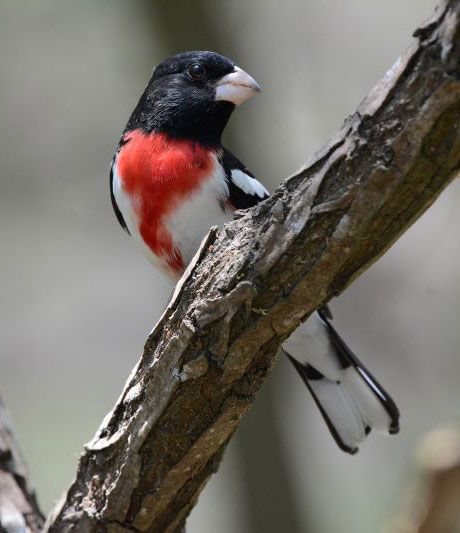
Artificial light is luring birds to cities and sometimes to their deaths
December 4, 2023
Nearly 1,000 birds tragically perished after colliding with a brightly lit building in Chicago, highlighting the severe threat posed by light pollution to migrating birds. A comprehensive study, using weather radar data, revealed that artificial lighting significantly influences birds’ stopover locations during migration, often leading them into dangerous urban areas.

David Roy Makes List of Most Highly Cited Researchers for Fifth Straight Year
November 27, 2023
Dr. David Roy, Director of the Center for Global Change and Earth Observations and professor of Geography, has been named to the list of most highly cited researchers in the world for a fifth consecutive year.
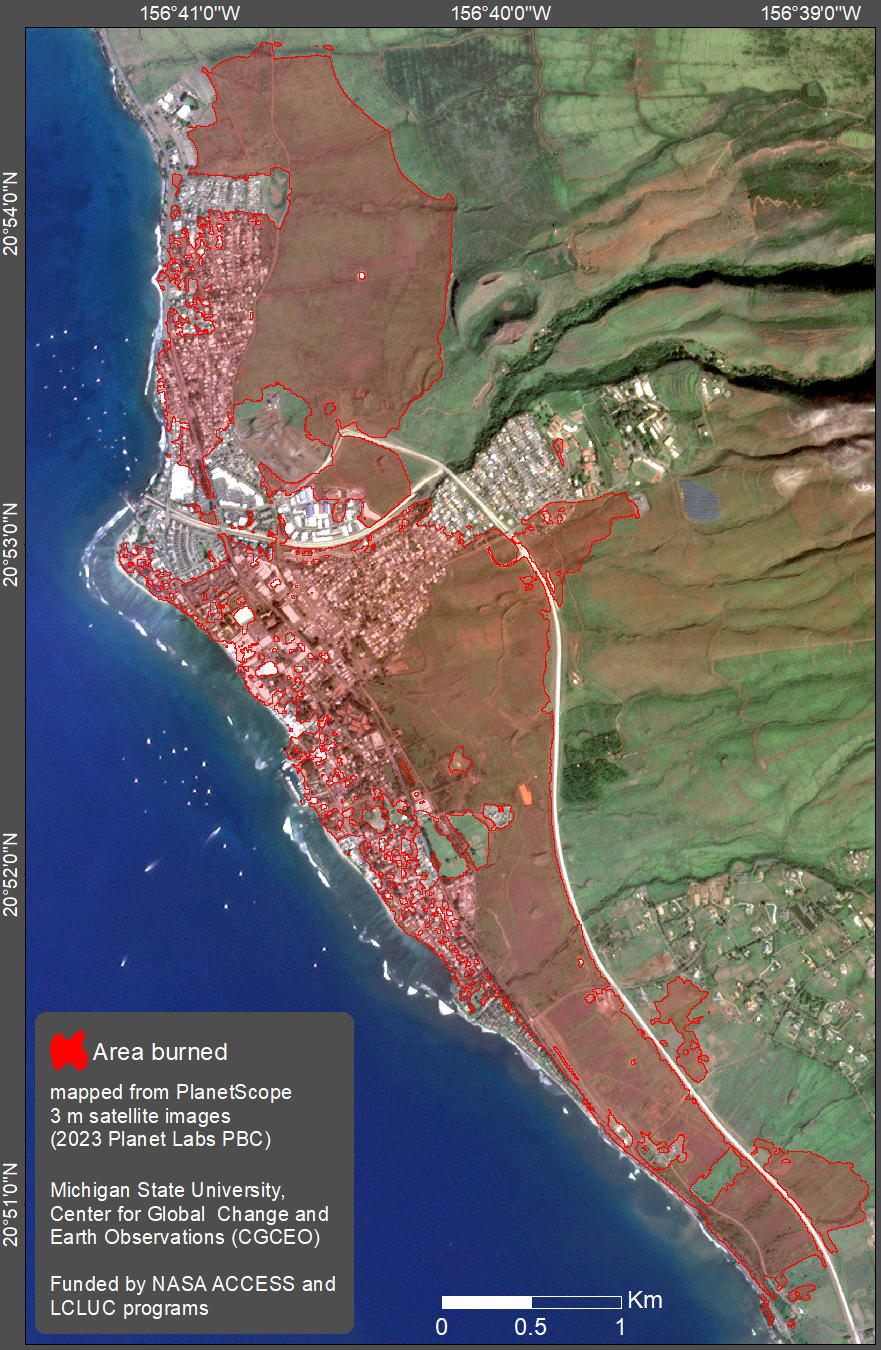
New images use AI to provide more detail on Maui fires
August 28, 2023 - Kim Ward
Michigan State University researchers have produced new detailed maps of the devastating fires in Maui, which can be used to help work out where and when the fires occurred to guide where postfire remediation activities should be prioritized and to assess future fire risk.

MSU scientists find plants' ability to fight climate change is weakening
August 15, 2023 - Diane Huhn
New research by Michigan State University climate experts published in the Journal "Science" indicates that plants' ability to absorb carbon dioxide (CO2) may have stalled.

MSU distinguished professor appointed to premier academic publisher’s Climate Action Advisory Board
August 13, 2023
Emilio F. Moran, a John A. Hannah Distinguished Professor at Michigan State University and respected researcher in the natural and social sciences, was recently appointed to the Elsevier Climate Action Advisory Board and will join distinguished international experts in the fields of climate research to accelerate action to address the climate crisis.

David Roy discusses importance of Landsat Science Team on USGS EROS Center podcast
June 11, 2023
David Roy, MSU professor of geography and director of the Center for Global Change and Earth Observations, was recently featured on the "Eyes on Earth" podcast produced by the USGS Earth Resources Observation and Science (EROS) Center.
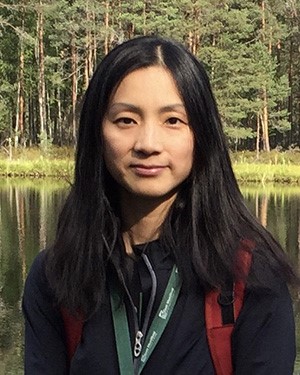
Peilei Fan Earns William J. Beal Outstanding Faculty Award
May 24, 2023
For her excellent research, her commitment to mentoring and student learning, and her service to her professional and MSU communities, Dr. Peilei Fan has earned the Michigan State University William J. Beal Outstanding Faculty Award.
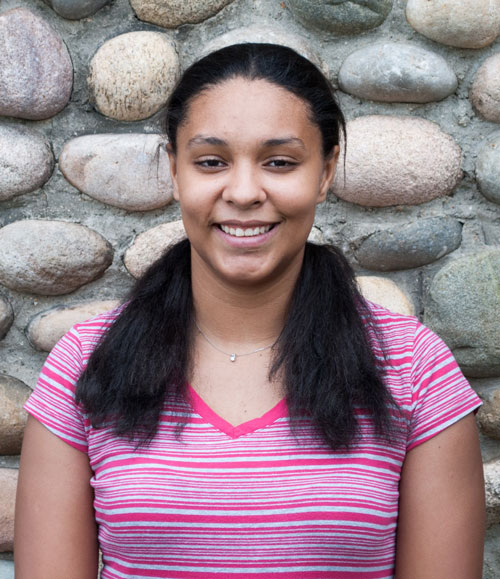
CGCEO Alumna Earns Early Career Award
May 22, 2023 - Britta Wellenstein
In honor of her significant accomplishments and contributions to the Great Lakes Bioenergy Research Center (GLBRC) and the broader scientific community, MSU Alumna Cheyenne Lei has been awarded the 2023 Jennifer L. Reed Bioenergy Science Award.

MSU researchers to lead $1.7M NASA grant to study urban-rural resiliency in Southeast Asia
March 20, 2023 - Diane Huhn
In a new $1.7M grant from the National Aeronautics and Space Administration (NASA), a group of researchers led by Dr. Peilei Fan from the Center for Global Change and Earth Observations (CGCEO) at Michigan State University will work to improve landscape sustainability and resilience in response to climate extremes and other challenges in Southeast Asia.

MSU study reveals inequity in journal peer review
March 19, 2023 - Sue Nichols
Scientists’ careers are defined by their contributions to peer reviewed literature. Yet, a recent Michigan State University study reveals that peer review disadvantages some scientists more than others, but solutions to rectify this disparity remain elusive.
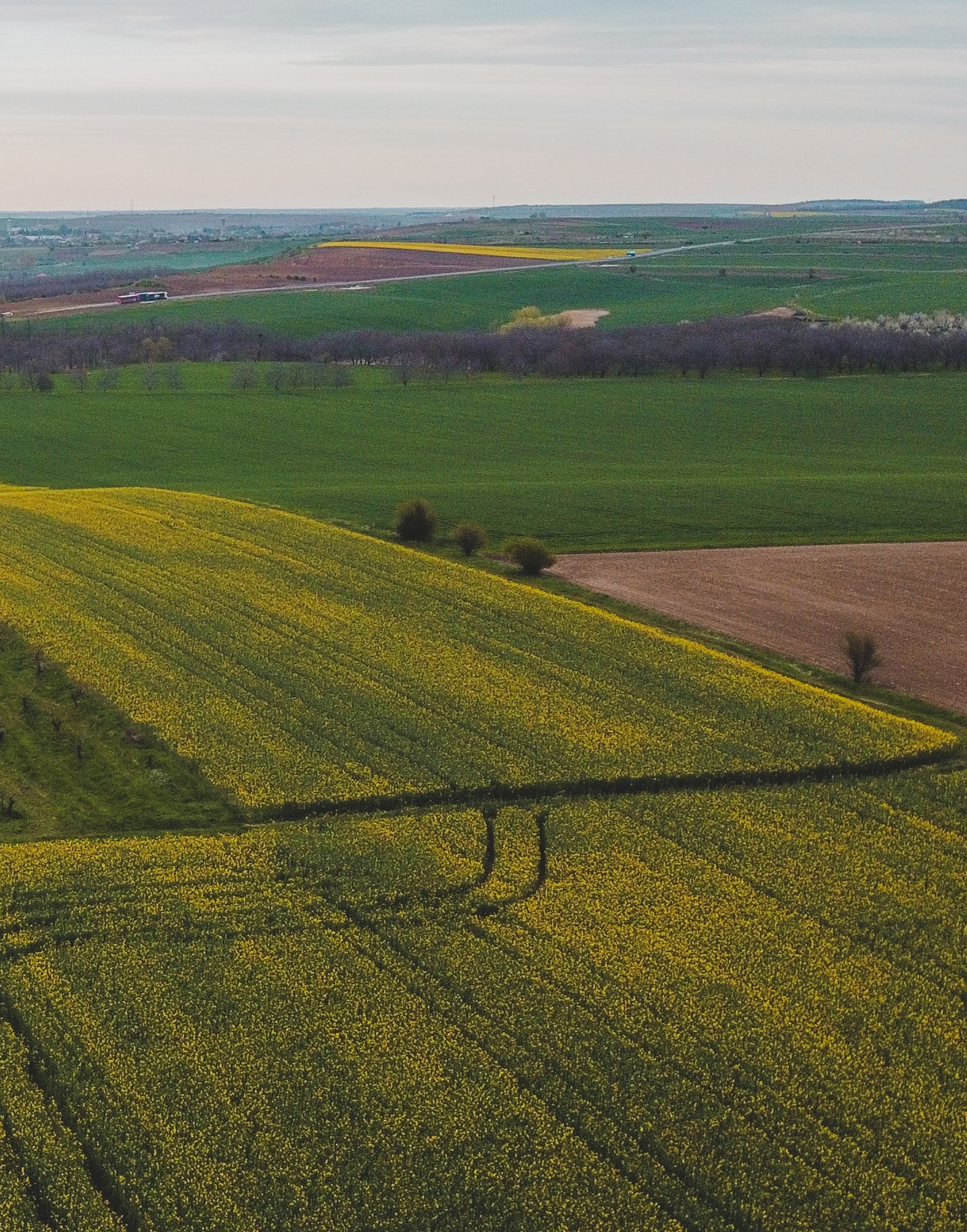
Shifting Policies, Shifting Crops: MSU Research to Investigate Agricultural Innovation in Post-Socialist Romania Under New NASA Grant
December 7, 2022 - Diane Huhn
Under a new, nearly $1 million grant from the National Aeronautics and Space Administration (NASA), researchers at the Center for Global Change and Earth Observations (CGCEO) at Michigan State University will be investigating how a mix of agricultural policies, access to technology, and geopolitical events, including the war in Ukraine, have altered agricultural land use patterns and the adoption of innovative farming practices in post-socialist Romania. The team has also been working on similar research in Kyrgyzstan over the past few years.

Center for Global Change and Earth Observations researchers to present leading-edge research at the 2022 Fall American Geophysical Union meeting
December 5, 2022
A large number of researchers with the Center for Global Change and Earth Observations (CGCEO) at Michigan State University will be heading to Chicago, Illinois, to present their latest findings at the upcoming American Geophysical Union (AGU) Fall Meeting.

MSU researchers part of $15M NASA grant to help US farmers
November 30, 2022 - Emilie Lorditch
Researchers at Michigan State University including Drs. David Roy and Lin Yan are part of a team of more than 30 researchers and stakeholders nationwide who will use a five-year, $15 million grant from NASA to strengthen U.S. agriculture as it faces climate threats.
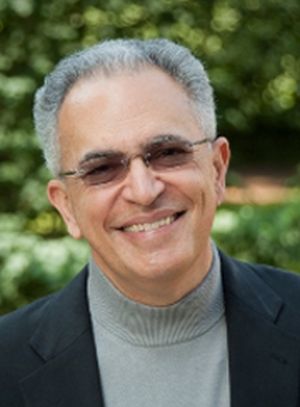
Power to the people must include the people
November 29, 2022 - Sue Nichols
Social scientists and communications experts joined engineers to engage rural communities that are off-grid in the Amazon rainforest to find better ways to deliver electricity.
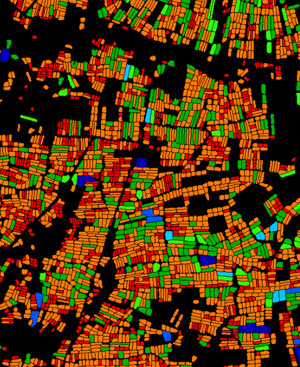
MSU Researchers to Study Asian Aquaculture with New NASA Grant
November 28, 2022 - Diane Huhn
With new funding secured through a nearly $800,000 grant from the NASA Land Cover/Land Use Change (LCLUC) program, researchers from Michigan State University will be working to assess aquaculture in Bangladesh, India, Myanmar, and Thailand. Using satellite imagery and survey information, Drs. Lin Yan, Ben Belton, and David Roy will analyze how the industry is driving land cover and land use change in aquaculture hot spots.
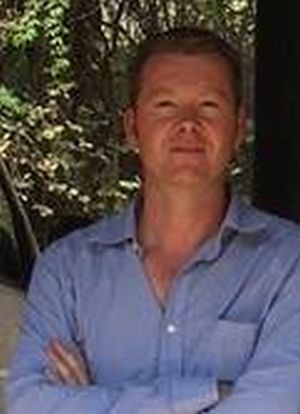
David Roy Makes List of Most Highly Cited Researchers for Fourth Straight Year
November 18, 2022
Dr. David Roy, interim director of the Center for Global Change and Earth Observations and professor of Geography, has been named to the list of most highly cited researchers in the world for a fourth consecutive year.
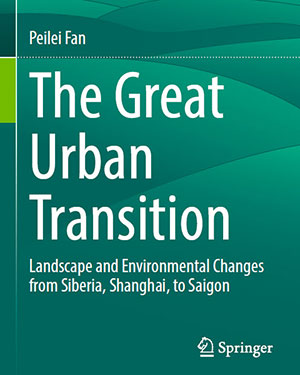
Peilei Fan Authors Book Shedding New Light on Asian Urbanization
September 19, 2022 - Diane Huhn
The Center for Global Change and Earth Observations (CGCEO) is pleased to announce the publication of "The Great Urban Transition," a new book by Dr. Peilei Fan examining the modern urbanization process in Southeast, East, and North Asia.

Ornithological Applications Journal Increases Impact Factor and Earns Top Global Ranking
August 15, 2022
Ornithological Applications, a key journal in the field of Ornithology edited by core CGCEO faculty member Dr. Catherine Lindell, has increased its Journal Impact Factor (JIF) and been ranked by Clarivate as the top scientific journal globally in the Ornithology category, out of 29 ornithology journals.
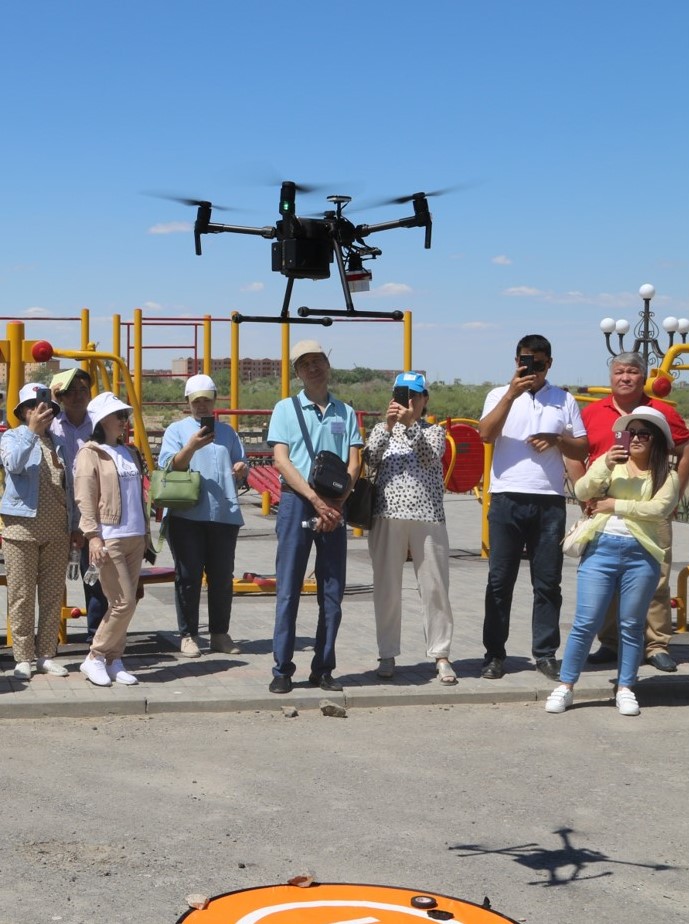
MSU Scientists Partner with Kazakh Universities to Expand Environmental Science Curriculums and Networking Opportunities
July 18, 2022
Last month, Michigan State University professors Jiquan Chen, Peilei Fan, and Norman Graham traveled to Kazakhstan to participate in a unique program designed to assist universities in rural areas of the country with developing and delivering core ecology and environmental science courses.
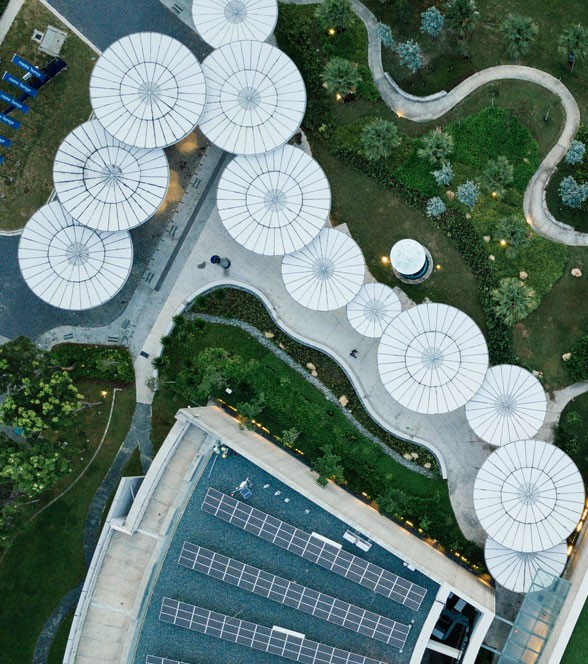
Hot Time in the City: Can We Cool Urbanization's Impact on Global Warming?
July 12, 2022 - Diane Huhn
Ground-breaking research led by Michigan State University (MSU) and Stanford University published in the journal Nature Communications is helping us better understand the effects of past and future urbanization on global warming at the planetary scale, and the need to regulate and enhance the albedo of urban land with better planning policies and new construction techniques.

MSU Research Identifying Farming Strategies for Global Agricultural Sustainability
July 11, 2022 - Diane Huhn
Research led by MSU postdoctoral fellow Olivia Smith explores and evaluates a variety of strategies designed to promote sustainable food systems that serve as a key part of the United Nations Sustainable Development Goals in a new publication in the journal “Frontiers in Sustainable Food Systems.”

CGCEO Research Helps Farmers Use Birds to Implement Integrated Pest Management
April 27, 2022 - Diane Huhn
CGCEO researchers Catherine Lindell and Olivia Smith are helping farmers learn how to effectively use birds to Implement integrated pest management through educational programming with the Wild Farm Alliance.

China and the World: China's Conservation Policies after Rapid Economic Development and Global Impact
March 29, 2022
Peilei Fan, Interim Director of the Center for Global Change and Earth Observations (CGCEO) at Michigan State University (MSU), and Jiaguo Qi, former CGCEO director, are joining forces with the Center on China's Economy and Institutions at Stanford University and collaborators at the Chinese Academy of Sciences to detail research related to China's conservation policies following rapid economic development. Research will be discussed as part of an event entitled "China and the World: Beyond the Headlines."

How Hydropower Dams Impact the Communities They're Built In
March 3, 2022 - Liz Schondelmayer
Over the last two decades, almost 1,000 hydropower dams have been built around the globe. And while these dams provide many benefits to farmers, wildlife and the climate, the costs of their construction on local communities where they are built has largely been left out of the conversation - that is, until now.
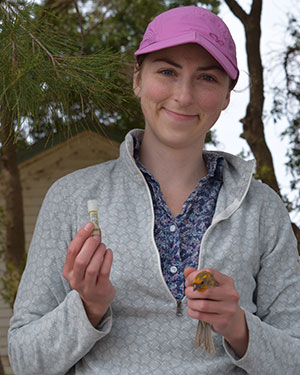
Bird-Friendly Agriculture: Finding the Right Balance to Benefit Birds and Farmers (and Everyone Else)
January 19, 2022 - Diane Huhn
In a new article published by the Journal of Applied Ecology, co-author Olivia Smith outlines how farmers might use landscape and farm diversification practices to more effectively harness ecosystem services provided by birds. Smith is a post-doctoral fellow with the Center for Global Change and Earth Observations, and the Ecology, Evolution, and Behavior program at MSU.
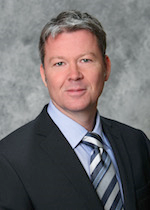
David Roy Makes List of Most Highly Cited Researchers for Third Straight Year
November 22, 2021
Dr. David Roy has been named to the list of most highly cited researchers in the world for a third consecutive year.
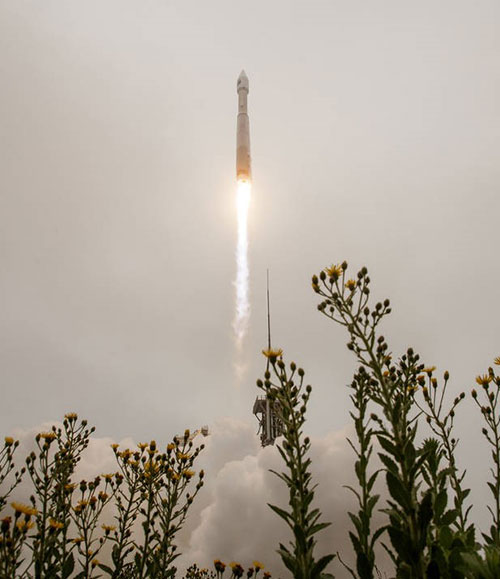
Center for Global Change and Earth Observation Researchers Attend Launch of Landsat 9 Satellite
October 3, 2021
Dr. David Roy and MSU researchers Drs. Haiyan Huang, Vitor Martins, and Lin Yan with the Center for Global Change and Earth Observations attended the successful September 27, 2021, launch of the Landsat-9 Earth Observation mission at Vandenberg Air Force Base in California.

MSU Social Scientists and Engineers Work Together for Sustainable Energy Solutions in the Amazon
May 11, 2021 - Diane Huhn
Social Scientists such as Emilio Moran are working with MSU Engineers to ensure that the needs of small communities, often negatively impacted by hydropower dam projects, are thoroughly considered in promising sustainable energy solutions in the Amazon.
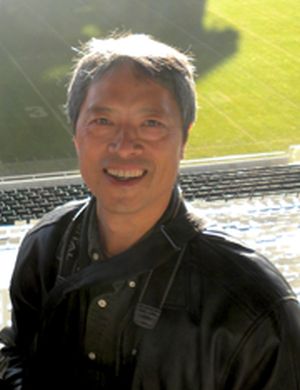
Chen Named Fulbright Global Scholar
April 6, 2021
Congratulations to Dr. Jiquan Chen on being named a Fulbright Global Scholar. As part of this experience, Dr. Chen will spend two to three months each at host labs in Australia and Germany working to build a network of scholars for promoting the research frontiers of global warming potentials and ecosystem services of managed landscapes, and will work towards publishing a textbook dealing with modern scientific hypothesis and experimental design across scales.
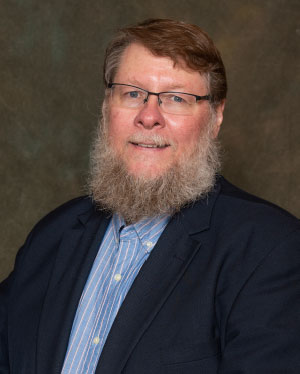
NASA Project Studies How Urban Centers May Trap Birds During Migration
March 4, 2021 - Diane Huhn
Michigan State University’s Geoffrey Henebry, professor in the Department of Geography, Environment, and Spatial Sciences and the Center for Global Change and Earth Observations is teaming up with Colorado State University’s Kyle Horton, now an assistant professor in the Department of Fish, Wildlife and Conservation Biology, to learn even more about the effects of cities as ecological traps for migrating birds.

MSU Scholar Emilio Moran Discusses Innovative Interdisciplinary Work Focused on Off-grid Hydropower in Brazil
December 17, 2020
World-renowned social anthropologist Emilio Moran discusses his latest work in the Brazilian Amazon with Russ White on a recent episode of MSU Today.

Center Researcher David Roy among the world's most highly cited researchers
December 8, 2020
Dr. David P. Roy, Professor of Geography and member of the Center for Global Change and Earth Observations, has been named one of the most highly cited researchers in the world. Dr. Roy is one of 9 Michigan State University researchers to be recognized in the 2020 Highly Cited Researchers List compiled by Clarivate Analytics.
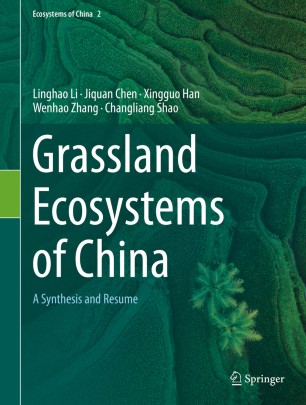
Chen Co-Authors Book Enabling International Audience a Detailed Exploration of China's Grassland Ecosystems
October 6, 2020 - Diane Huhn
Jiquan Chen of the Center for Global Change and Earth Observations (CGCEO) and the Department of Geography, Environment, and Spatial Sciences at Michigan State University, has joined several scholars in publishing the first in a planned series of volumes enabling the broader international community to explore the ecosystems of China.
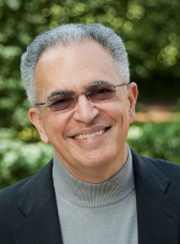
MSU Interdisciplinary Team Secures $3.2M National Science Foundation Convergence Grant to Empower Off-grid Communities
October 5, 2020 - Diane Huhn
Michigan State University Researcher Emilio Moran will lead a team in the development of a convergent framework offering non-dam hydropower as a sustainable energy solution for off-grid communities while empowering and engaging residents throughout the process.
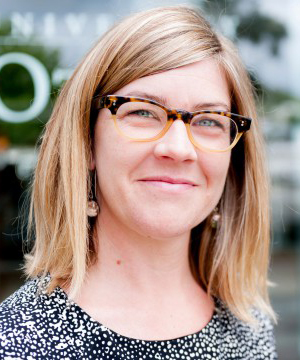
Dr. Amber Pearson to Present on Blue and Green Spaces at 2020 SHIFT Summit
September 16, 2020
Dr. Amber Pearson will present at the 2020 SHIFT Summit in October.
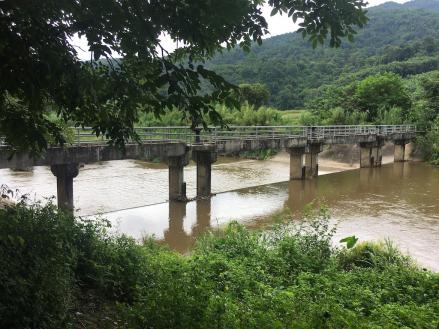
Luce Foundation Grant Launches Interdisciplinary Program on Mekong Sustainability
July 26, 2020
$1M Grant from Luce Foundation Grant Launches Interdisciplinary Program on Mekong Sustainability
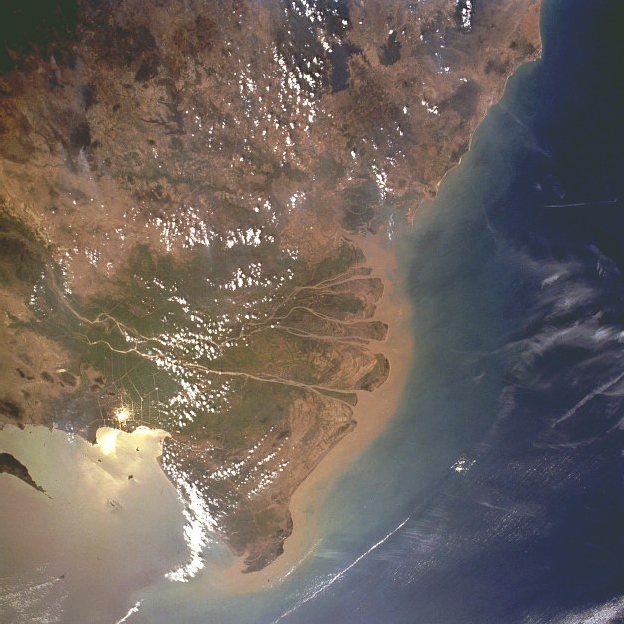
Unlocking the Water-Energy-Food Nexus: Global Learning for Local Solutions
May 10, 2020
MSU Global Change Science continues to push the frontiers of understanding at the Water-Energy-Food nexus. Recent case studies of areas affected by hydro-dams including the lower Mekong River Basin, the Yangtze River Delta, the Ili-Balkhash Basin, and the Amazon Basin demonstrate pioneering work by Center researchers and international partners in this area.
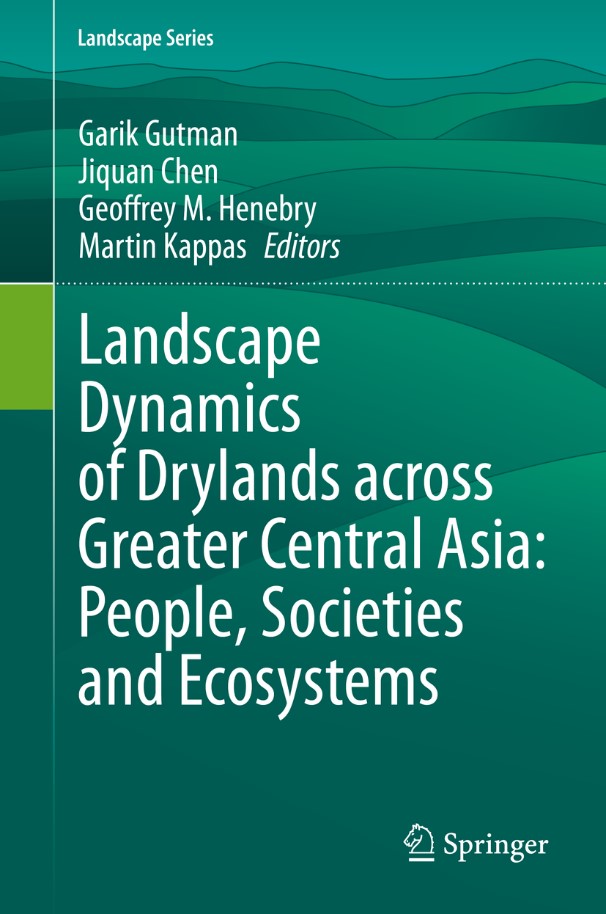
GGCEO Faculty Contribute to Book about Landscape Dynamics Across Central Asia
May 1, 2020
Important research about the drylands of the greater Central Asia region by several professors in the Michigan State University Department of Geography, Environment, and Spatial Sciences and the Center for Global Change and Earth Observations is featured in a recently published book.
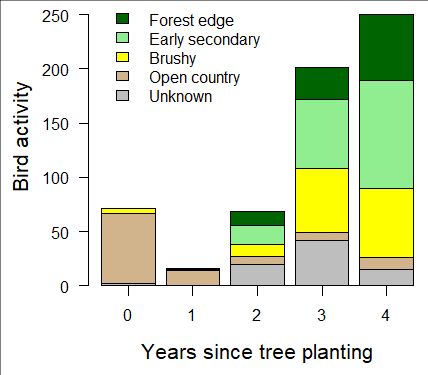
Bird Behavior in Forest and Field – Supporting Ecosystem Services and Disservices
March 17, 2020
“Throughout the world, hundreds of species participate in mixed-species flocks”, with some groupings containing over 50 other transient species (William and Lindell 2019:1-2). Who knew?
Our Future on Earth 2020
February 13, 2020
The Future Earth global research network has just released a new and compelling report...
Article by Tom Dietz and Colleagues Featured on Cover of Nature
January 6, 2020
"In the paper 'Assessing progress towards sustainable development over space and time' in this week’s edition of 'Nature', scientists from MSU and in China show that indeed all sustainability, like politics, is local." MSU Today
CGCEO Faculty Convene Session at AGU Fall Meeting 2019
December 12, 2019
CGCEO faculty convened a session on Sustainable Urban Systems (SUS) Science at this week's AGU Fall Meeting 2019 in San Francisco.

Dee Jordan receives 2020 AAG Enhancing Diversity Award
November 1, 2019
Congratulations to PhD candidate Dee Jordan on being awarded a recipient of the 2020 AAG Enhancing Diversity Award.
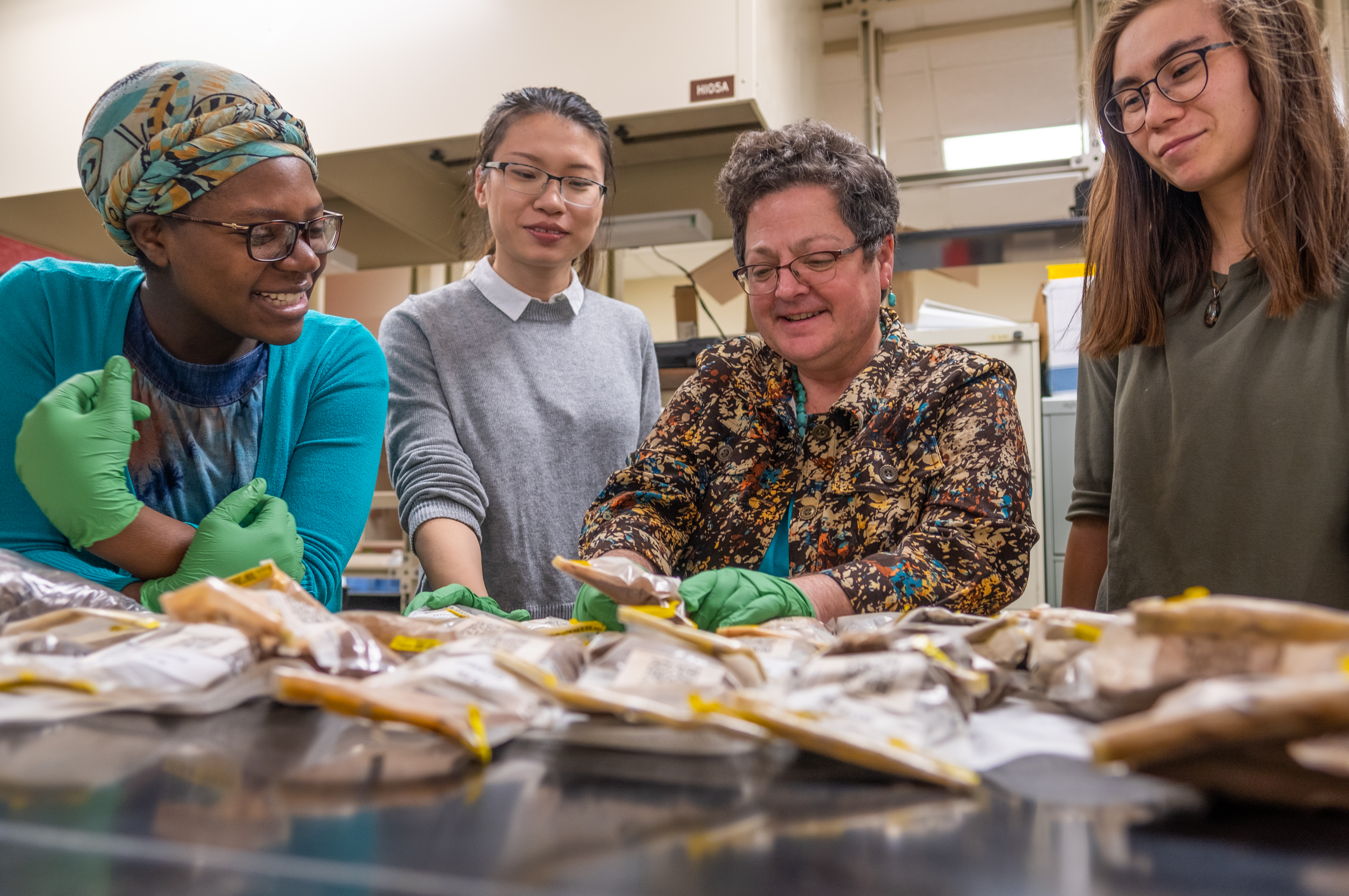
Dr. Sieglinde Snapp awarded Fellow status in SSSA
October 29, 2019
Sieglinde Snapp, Professor of Soils and Cropping Systems Ecology and Associate Director of CGCEO, has recently been awarded Fellow status in the Soil Science Society of America (SSSA)

Geospatial Scientist Talent Cluster at MSU Recognized by NASA Program
September 4, 2019
The NASA Land-Cover/Land-Use Change (LCLUC) Program has awarded four of the nine proposals funded from its latest call to faculty now affiliated with the MSU Center for Global Change and Earth Observations (CGCEO).
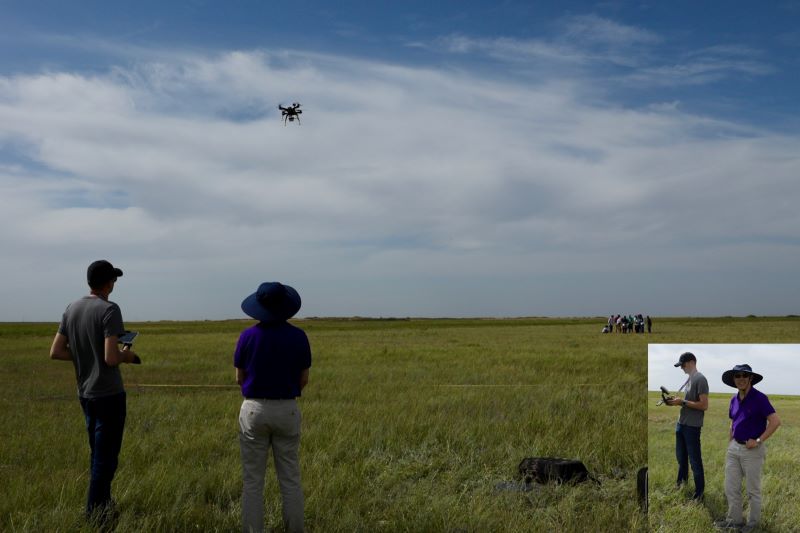
Desertification and the cost of cattle grazing in Kazakhstan – CGCEO provides a geospatial perspective
August 20, 2019
Dr. Jiaguo Qi, together with colleagues at the U.S. Department of Agriculture and AgriTech Hub Kazakhstan, have been awarded a contract by the Asian Development Bank for $500,000 to examine the relationship among climate change, desertification, farming and cattle grazing practices in Kazakhstan.
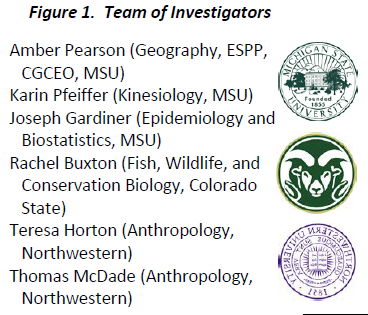
The health benefits of neighborhood greenspaces – NIH funds research on causal connections
August 6, 2019
Recently awarded $3.3 million by the National Institutes of Health, Dr. Pearson leads a highly interdisciplinary, multi-university team (Figure 1) who will investigate whether over time, exposure to green space will lead to improved physical activity and downstream cardio-metabolic health for residents of several low-income neighborhoods in the City of Detroit.

